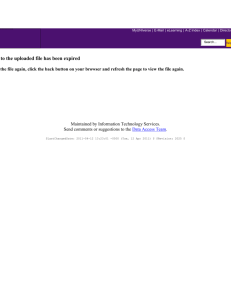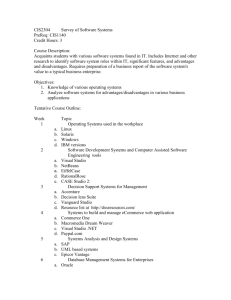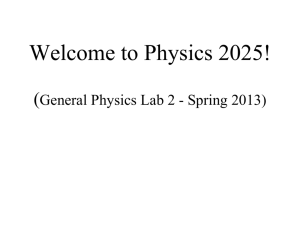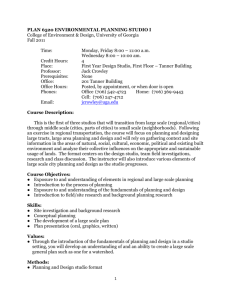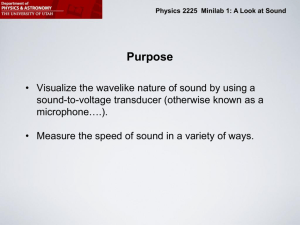Physics 2025 Lab 1: Sound Purpose
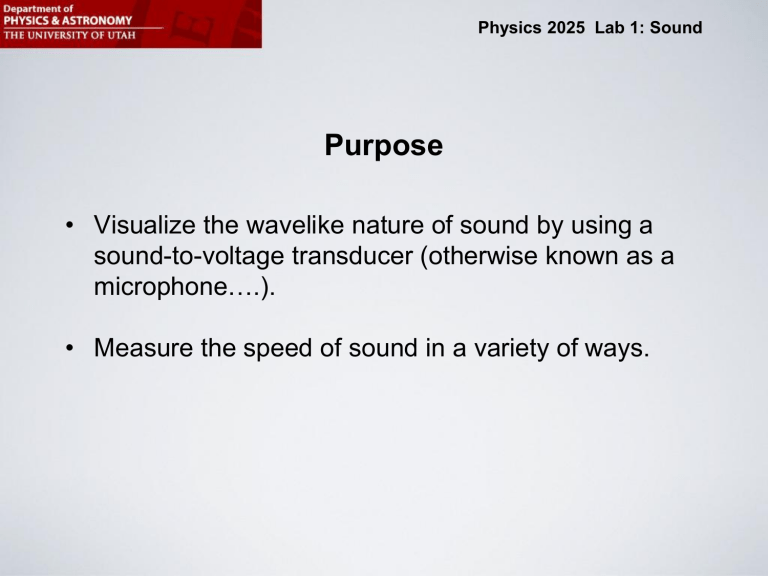
Physics 2025 Lab 1: Sound
Purpose
• Visualize the wavelike nature of sound by using a sound-to-voltage transducer (otherwise known as a microphone….).
• Measure the speed of sound in a variety of ways.
Physics 2025 Lab 1: Sound
Activity I: The Nature of Sound
Microphone (converts sound to electric voltage)
Sound
Pasco 750 Interface
Computer/Data Studio : Used as an oscilloscope
Physics 2025 Lab 1: Sound
Data Studio as a 1-Channel Oscilloscope
adjust vertical axis by clicking on black triangles adjust trigger level here by sliding triangle up or down adjust horizontal axis by clicking on black triangles
Physics 2025 Lab 1: Sound
1ms
T (period)
1 ms div f
1
T
Physics 2025 Lab 1: Sound
Activity IV: Measuring the Speed of Sound with an Echo
Microphone 1
(plugged into port A !!
)
Stand
Table
Clap !
d v
distance time
2
d t
Hollow cardboard tube
Physics 2025 Lab 1: Sound
Identify a repeated pattern…you may need several attempts t
First passage
Echo
Physics 2025 Lab 1: Sound
Activity 5: Standing Waves and the Speed of Sound tuning fork
L
Procedure:
Adjust pipe location until the sound from the tuning fork is amplified.
Measure L as shown on the left.
Think about the relationship between the wavelength l and the length L.
Determine wavelength l.
Calculate the speed of sound using v s
f l
Note: f is written on the tuning fork .
Physics 2025 Lab 1: Sound
% Difference (e.g., Problem 8)
% difference
measured value
theoretica l value
100 theoretica l value
Physics 2025 Lab 1: Sound
Important
We will need to use “Data Studio” instead of “Capstone” in this activity. The file cannot be loaded from the website.
You need to go to the desktop of your computer and find the shortcut “Physics Lab”. Then click your way through the folders to the Data Studio activity called “Sound”.
Whenever you launch a new Data Studio file, you must first close all other existing Data Studio files and all
Capstone activities. Then launch the new Data Studio
Activity. Still, sometimes the “Start Button” won’t work. If that happens, close the file and launch it again.


